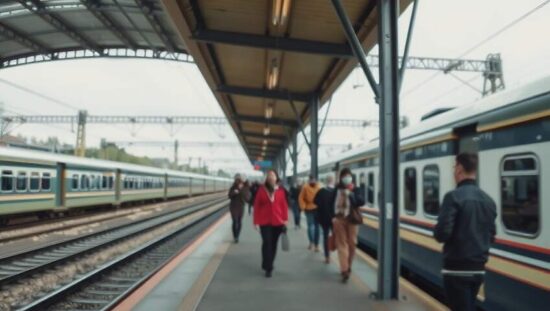The passenger advocacy group Pro Bahn is escalating calls for substantial political investment in the safety and cleanliness of German railway stations, highlighting a growing sense of unease and insecurity among travelers. Detlef Neuß, the group’s federal chairman, articulated the deepening concern in an interview with the “Rheinische Post” emphasizing that the presence of homeless individuals, drug addicts, intoxicated persons and potentially violent groups is actively deterring, particularly women, from utilizing train services, especially during evening hours.
Neuß painted a stark picture of a deteriorating environment, contrasting the historical respect afforded to train conductors – previously figures to be avoided by fare dodgers – with the current reality of verbal abuse, spitting and even physical attacks perpetrated by individuals attempting to travel without tickets. He argues the shift represents a broader erosion of order and civility within public spaces.
Pro Bahn’s proposed solutions center around a significant overhaul of security protocols and infrastructure. Neuß specifically demands increased police presence and expanded staffing at stations. Critically, he asserts that responsibility for patrolling areas surrounding stations, often hubs for drug-related activity, must be transferred from the federal police to state police forces, a move he believes will lead to more effective intervention.
Beyond security, Neuß insists that improved hygiene is paramount to enhancing passenger comfort and encouraging ridership. He also questioned the rationale behind recent energy-saving initiatives that have involved dimming station lighting, arguing that the resulting diffuse illumination generates anxiety and a sense of vulnerability by obscuring surroundings. This raises a broader debate about balancing environmental considerations with the need for public safety, a tension increasingly at the forefront of political and social discussions within Germany. The group’s demands reflect a growing pressure on lawmakers to prioritize the perceived decline in safety and quality of the rail network amidst broader socio-economic challenges.





